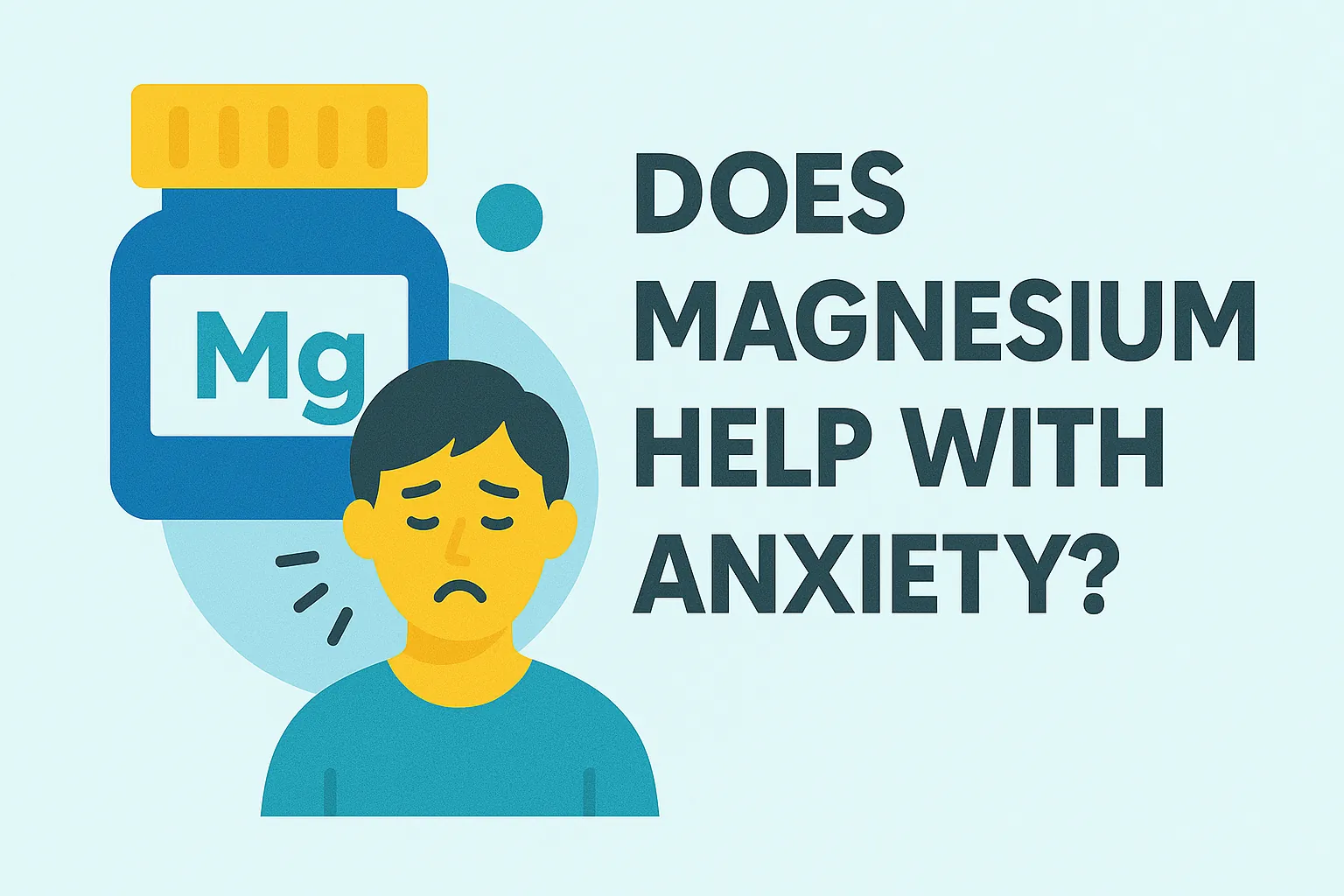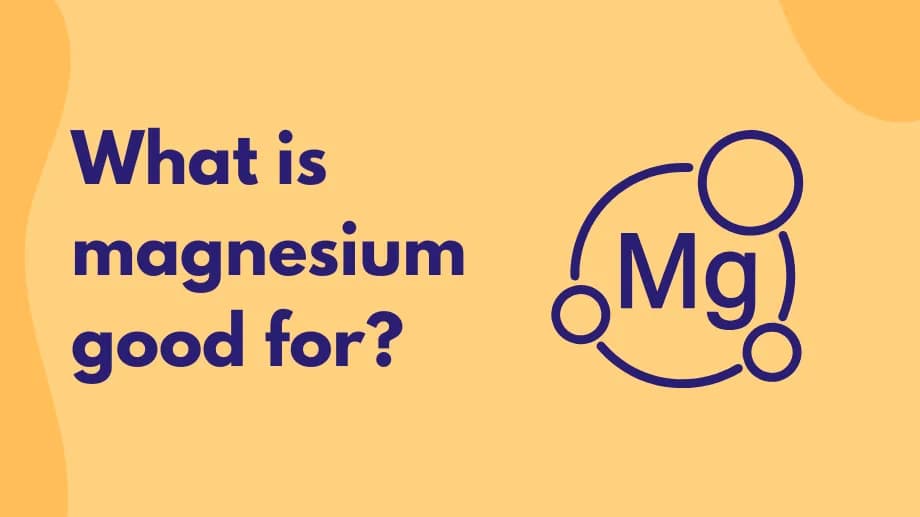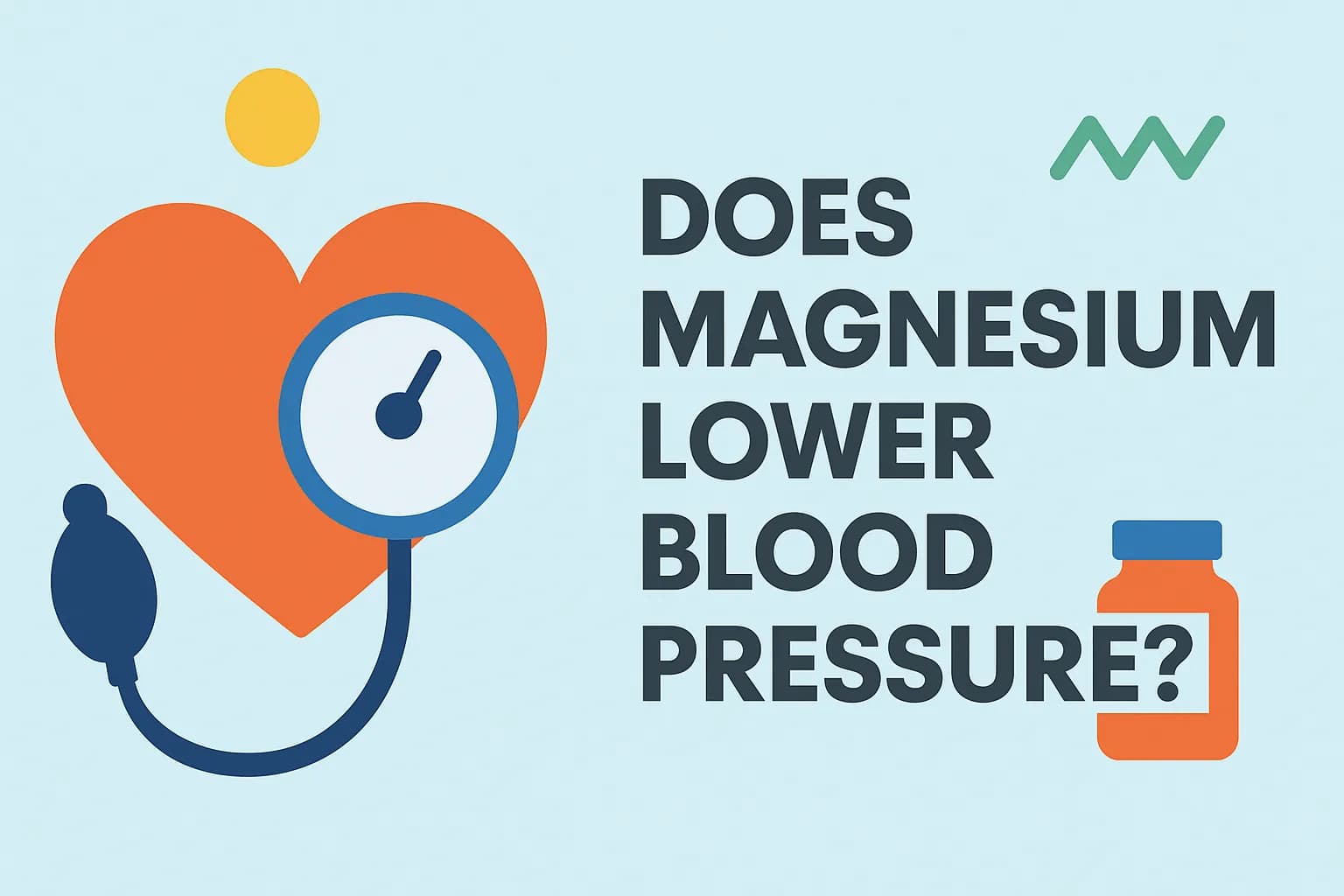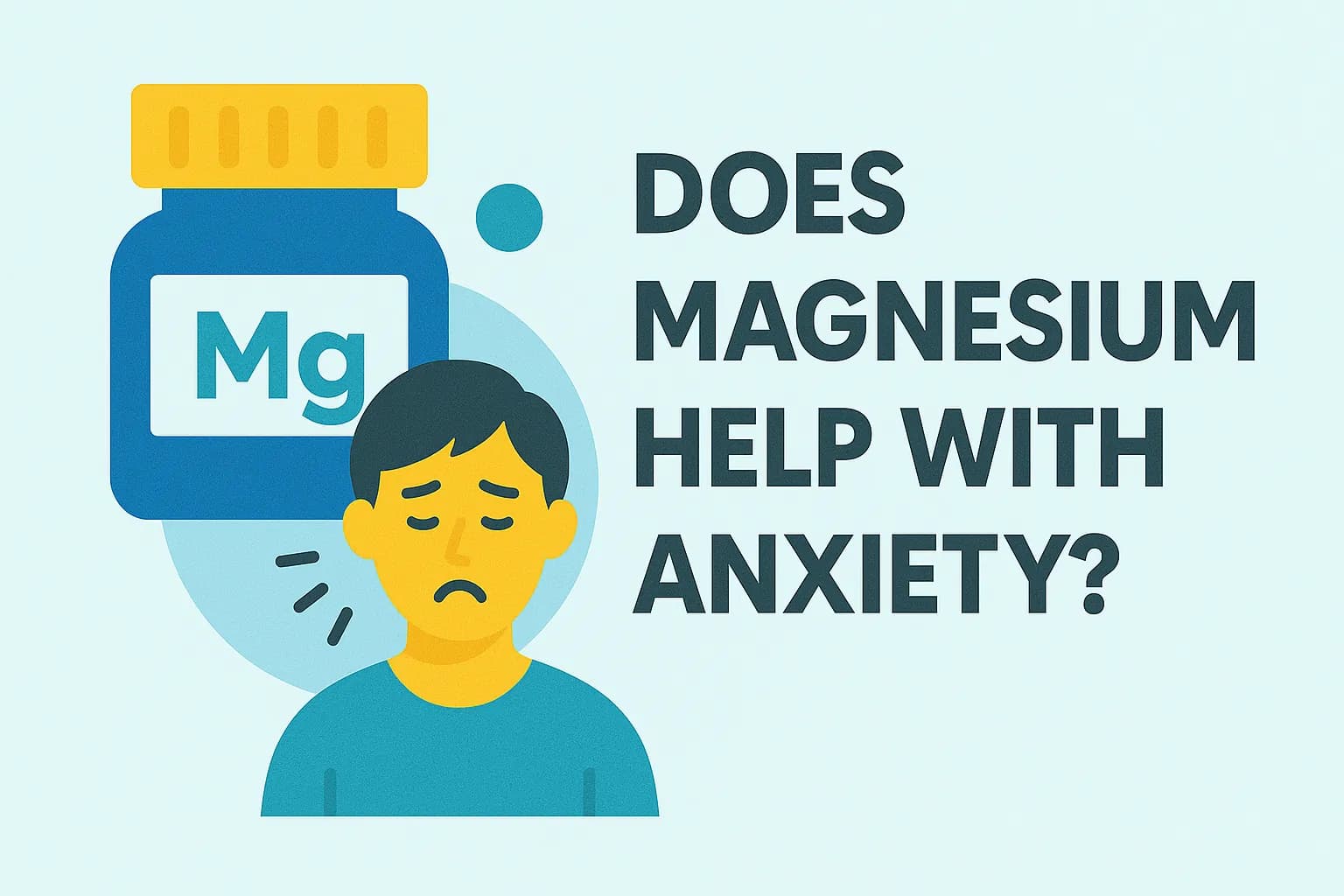Does magnesium help with anxiety?

Magnesium is an essential mineral found in foods like leafy green vegetables, nuts, whole grains, and legumes. Low magnesium levels have been linked to symptoms such as insomnia, irritability, muscle spasms, and high blood pressure, as well as mood disorders including anxiety.
How magnesium may reduce anxiety
- Regulates neurotransmitters by blocking excess glutamate activity and enhancing gamma-aminobutyric acid (GABA)
- Helps manage cortisol, the stress hormone, reducing stress responses
- Reduces muscle tension and cramping, a common physical symptom of anxiety
- Supports production of melatonin for better sleep, which in turn lowers anxiety
Forms of magnesium for anxiety relief
- Magnesium citrate: quickly absorbed, may ease sleep and muscle tension; can cause stomach upset at higher doses
- Magnesium glycinate: combined with the calming amino acid glycine; gentle on digestion and may improve sleep quality
- Magnesium oxide: commonly available, also used to reduce migraine risk
- Magnesium chloride: well absorbed, linked to reduced depression and anxiety symptoms
- Magnesium L‑Threonate: crosses into the brain efficiently; shown to lower anxiety in older adults
- Magnesium taurate: paired with taurine to boost GABA activity and support mood
Side effects and precautions
Common side effects include nausea, diarrhea, vomiting, and abdominal cramping. Doses above 5000 mg per day can lead to toxicity with symptoms like very low blood pressure, slowed heart rate, confusion, breathing difficulty, muscle weakness, irregular heartbeat, cardiac arrest, and kidney failure.
Recommended intake for anxiety
The Recommended Dietary Allowance for adults ranges from 310 mg to 420 mg daily, varying by age and gender. Consult your healthcare provider to determine the right form and dosage for managing anxiety.
Additional anxiety management strategies
- Regular exercise
- Breathing and relaxation techniques
- Consistent sleep hygiene
- Meditation or mindfulness practices
- Balanced diet and limited caffeine, alcohol, and tobacco
Sources
- Boyle NB, et al. The effects of magnesium supplementation on subjective anxiety and stress. 2017.
- NIH Office of Dietary Supplements: Magnesium fact sheet.
- Kirkland AE, Sarlo GL, Holton KF. The Role of Magnesium in Neurological Disorders. Nutrients. 2018.







